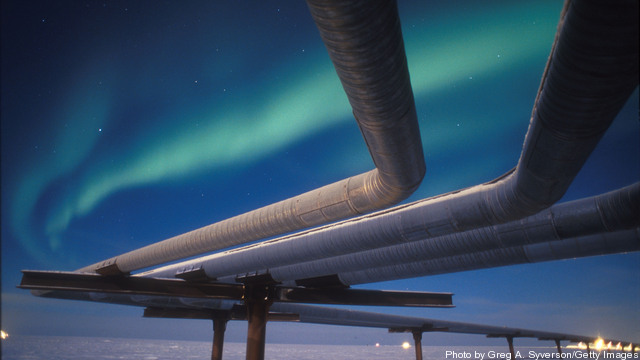 Shell spent billions of dollars and significant political capital to obtain the licenses and approvals required to explore for oil and gas off the coast of Alaska.
Shell spent billions of dollars and significant political capital to obtain the licenses and approvals required to explore for oil and gas off the coast of Alaska.
The company’s problems in the region were compounded when a drilling rig ran aground in rough seas on December 31st as it was being towed from Alaska to the port of Seattle, Washington for scheduled offseason maintenance – the rig was not drilling at the time. Although there does not appear to have been a petroleum release, the risks associated with operating in the Arctic have been highlighted by the incident.
The rig named Kulluk broke its tow line and was stranded off Sitkalidak Island until being refloated on Jan. 6 and towed to a safe harbor location in Kiliuda Bay, located about 40 miles northeast. “Monitoring by the oil spill response vessels escorting the tow confirmed that there were no signs of a discharge of oil during the transit,” according to the Unified Command team led by the US Coast Guard that is in charge of the operation.
Next to the proposed Keystone Pipeline and hydraulic fracturing, Shell’s Alaskan operations remain one of the most controversial oil and gas industry issues today and the Kulluk incident could represent a setback for Shell and the wider industry.
With much of the so-called “easy oil” already discovered globally, companies are increasingly moving further offshore into ultra-deep water and harsh Arctic environments where significant oil and gas deposits are believed to remain. The dangers of operating far offshore were exemplified by the Deepwater Horizon accident involving BP, Transocean and other contractors. A similar accident in the Arctic would likely impact the environment even more severely.
The Kulluk had up to 143,000 gallons of diesel and approximately 12,000 gallons of other petroleum products on-board at the time of the incident – none of which reportedly leaked – Breaking Energy received a response from Ignacio Gonzalez, Joint Information Center, Kulluk Tow Response Incident Command, who confirmed “there were no signs of a discharge of oil during the transit.”
While the Kulluk’s grounding is certainly a blow to the industry’s public relations, a potentially tighter regulatory environment in the incident’s wake is arguably of greater concern to operators.
